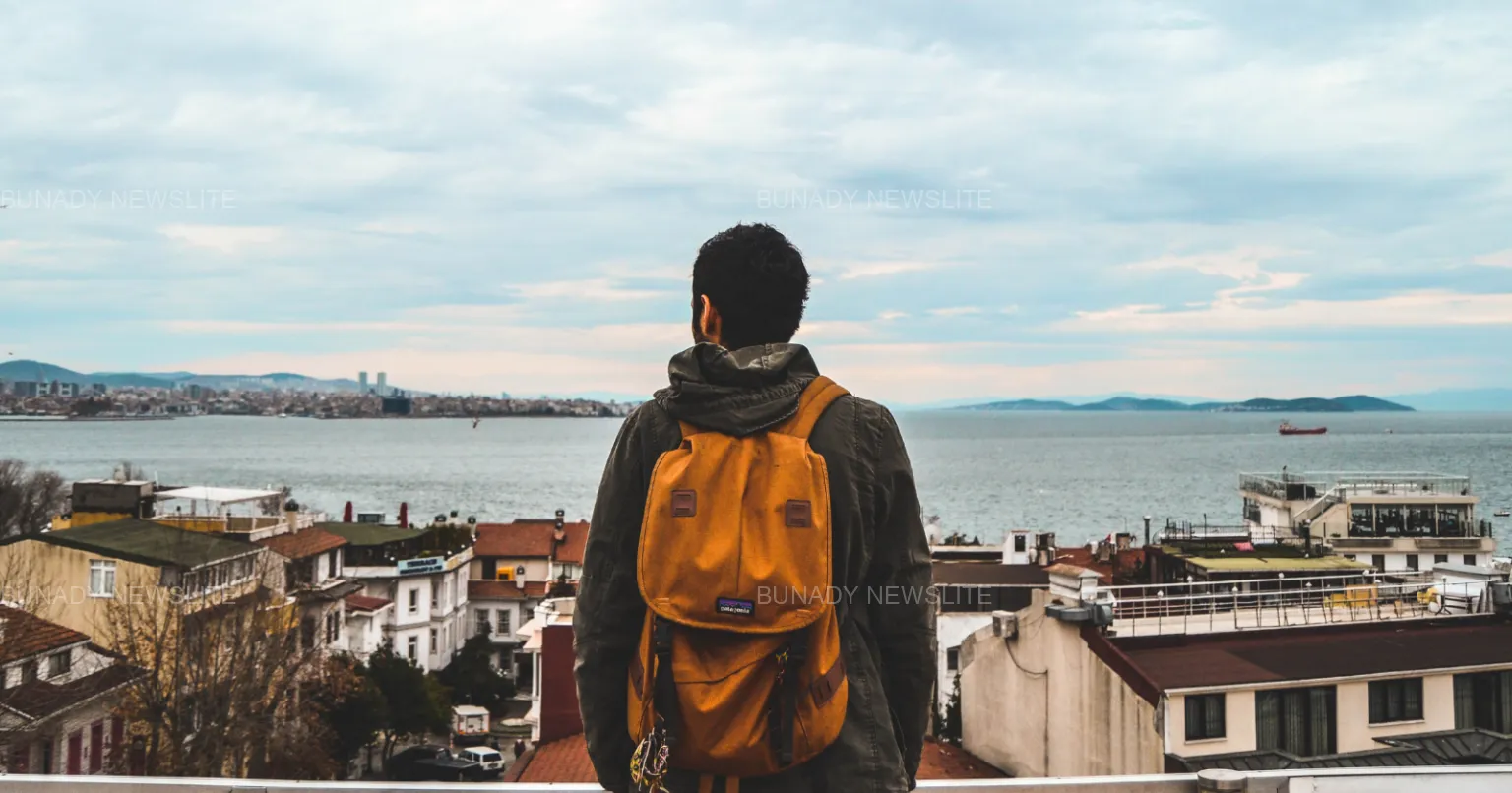Living abroad is often portrayed as an endless adventure filled with Instagrammable scenery, new cuisines, and exciting cultural experiences.
It’s easy to romanticize the idea of packing up and moving to a foreign country. You hear stories of people who find a life of spontaneity and personal growth, as if stepping off the plane instantly transforms everyday stress into a year-round vacation.
Yet there’s a side we rarely talk about: the emotional, psychological, and practical realities that can catch you off guard.
I’ve spent enough time traveling, both for leisure and for work, to realize that not every day abroad is postcard-perfect. In fact, some days can feel more challenging than if you had stayed home.
Here at DM News, we strive to give you the bigger picture—so let’s get into what really happens when you live thousands of miles away from everything familiar.
Living in a new place is exhilarating at first. Everything from the street signs to the local grocery store can feel like an adventure.
But once the initial excitement wears off, a sense of isolation can creep in. You might be surrounded by neighbors whose language you barely understand and coworkers who have grown up with a completely different set of social cues.
I experienced this firsthand when I spent six months in Southeast Asia. During those first few weeks, it felt like I was at summer camp for adults.
Then the reality set in that I was far from my usual support network. Texting friends back home wasn’t quite the same as meeting up for coffee when I was feeling lonely.
I still remember the internal struggle of wanting to fully embrace my new environment yet missing the small comforts of home—like being understood without having to explain every cultural reference.
According to an AXA-Global Healthcare study, nearly nine out of ten expats have felt isolated during their time abroad.
These numbers might not show up in the glossy travel brochures, but they represent a common emotional hurdle.
Isolation is not a deal-breaker, but it’s definitely a sign that living overseas is more than just an extended vacation.
2. The cultural mindset shift
It’s not just about learning new words or trying new foods. Embracing a foreign culture means reevaluating your habits, assumptions, and even your values.
You quickly discover that day-to-day norms can be shockingly different. Little things, like how to greet someone politely or when it’s acceptable to be late, can spark confusion.
I remember discovering that in some places, running ten minutes behind isn’t just accepted—it’s considered normal. Coming from a high-paced environment where being tardy can be a career-killer, I had to learn to adjust my perspective.
It was a small lesson in cultural relativity: neither approach is universally right or wrong, but if you fail to adapt, you’ll find yourself constantly frustrated.
These mental adjustments can be exhausting. There’s a psychological toll in having to rewire your responses to fit into a place that operates differently than what you grew up with.
That reevaluation can be a catalyst for growth, but it doesn’t come without its share of awkward moments and growing pains.
3. The unexpected financial puzzle
It’s tempting to think living abroad will solve all your financial woes—maybe you’ve heard about cheaper rent or a lower cost of living.
But the truth can be more complicated. Even if rent is lower, you might face new expenses such as visa fees, language classes, or international health insurance. Local salaries in many countries can also be much smaller than what you’re used to back home.
I had a friend who moved from California to Spain, assuming that her daily expenses would drastically drop. She quickly found out that while rent was lower, her new work contract paid significantly less than a comparable job in the U.S.
Factoring in bureaucratic fees and the cost of flying home at least once a year for family visits, her budget became trickier than expected.
Nobody likes to discuss these nitty-gritty money matters when daydreaming about an overseas life. Yet finances have a real impact on your mental health.
Being in an unfamiliar country is stressful enough without feeling you’re on shaky ground financially. If you’re considering the move, it’s crucial to do the math, talk to people who’ve lived where you’re going, and budget for inevitable surprises.
4. The emotional push and pull of “home”
What does home even mean when you’re living in another country?
I’ve heard from people who say they feel like outsiders in both their old homeland and their new one. That can leave you in a weird limbo where you’re never entirely comfortable in either place.
One day, you’re embracing your fresh start abroad, feeling free and unburdened. The next day, you’re longing for the familiarity of your old neighborhood or a favorite local diner.
By the time I returned to the States after my time in Asia, something felt off. My friends had moved on with their lives in ways I hadn’t expected. The city I called home had changed in subtle ways—new restaurants I didn’t recognize and old hangouts that had closed down.
Reverse culture shock is just as real as the culture shock you get when you first arrive somewhere foreign.
Psychologically, this back-and-forth can be taxing. You end up realizing that belonging isn’t just about a place—it’s about relationships and feeling understood.
Living abroad might offer new forms of fun, but that sense of belonging must be built slowly, over months or even years. It’s not an instantaneous benefit.
5. The personal growth that goes under the radar
Finally, there’s the upside that doesn’t always make the Instagram highlights—real, messy personal growth.
When I talk about learning from living in another country, I’m not just referring to mastering a second language or figuring out how to navigate the public transit system.
It’s about discovering unknown strengths and vulnerabilities you have never confronted before.
I’ve mentioned this in an earlier post, but the experiences I had while traveling taught me resilience in ways my life back home never required.
Dealing with loneliness made me more self-reliant.
Sorting out visa complications pushed my problem-solving skills to the limit.
And trying to make friends in a new culture pushed me to listen more and talk less—a change that had a profound impact on my relationships later on.
Those transformations often happen slowly, without fanfare. One day, you might realize you’re far better at coping with uncertainty than you were a few months ago. Or you might notice that you’ve become more empathetic toward different perspectives.
It’s a growth trajectory that can’t be replicated just by taking a two-week vacation. But nobody really prepares you for how much it will stretch your comfort zone day after day.
6. The need to forge a new normal
Adjusting to life in a foreign environment means figuring out routines that keep you sane. You won’t have your usual group of friends, your go-to grocery store, or even the same job dynamics.
There’s a phase where everything feels like trial and error. Is it okay to exercise in the local park, or should you join a gym? Which local market has the best produce for a decent price? How do you find meaningful connections without the network you left behind?
This trial-and-error process can be both invigorating and draining.
On one hand, every day feels like a new puzzle to solve. On the other, you might reach a point where you just want something familiar and predictable.
It’s in these moments that you learn the value of consistency—a small routine like visiting the same coffee shop every morning can become a lifeline.
For me, finding a local café and chatting with the barista in broken sentences was a big step toward feeling less like a tourist and more like a resident.
Figuring out your new normal is a daily challenge, but it’s also an opportunity to reinvent routines you might have been stuck in back home.
When you’re immersed in an unfamiliar environment, old habits can be reshaped, improved, or even discarded entirely. You might discover you’re more open-minded or adaptable than you ever realized.
But you have to be willing to face those uncomfortable phases of trial and error first.
Putting it all together
Living in another country can be a dream, yes, but it’s not a continuous highlight reel.
The transition involves hurdles that can take you by surprise—loneliness, cultural recalibration, budget pressures, and a sense of being caught between two worlds.
It’s far more than a postcard-perfect narrative, though. It’s a deeply personal and transformative journey that challenges you to grow in ways you might never have anticipated.
If you’re thinking about making the jump, just remember that there’s a complex reality waiting beneath the glamour. Plan for the rough patches and embrace the life lessons as they come.
At the end of the day, being an expat or long-term traveler is a fascinating chapter in your story—but it’s also a chapter that requires grit, understanding, and an openness to change.
The reward, if you can see it through, is a broader outlook on life and a renewed sense of who you are, no matter where you decide to call home next.

